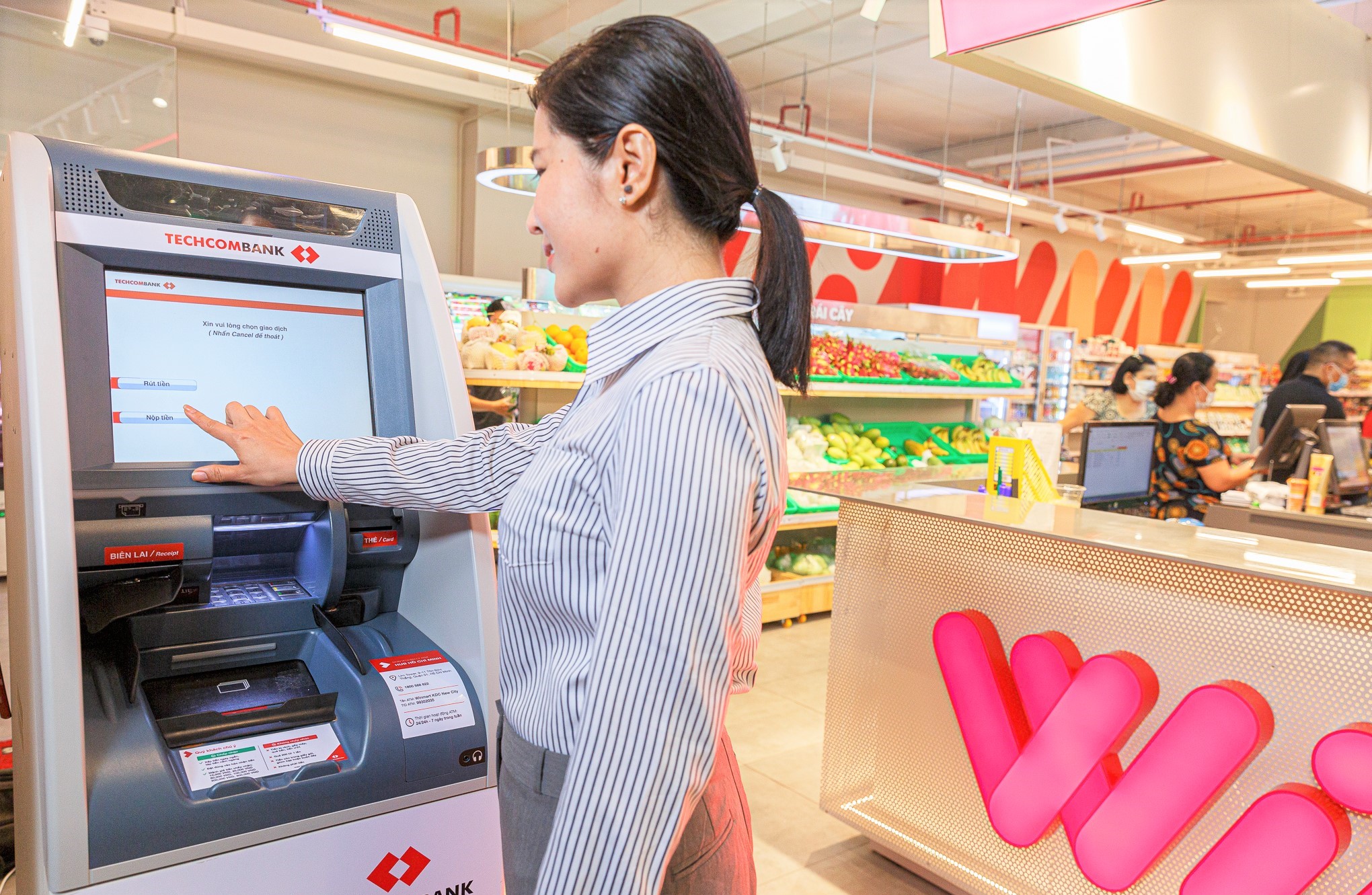Fintech, a combination of the terms "financial" and "technology," is simply the application of intelligent innovations and innovations of information technology to financial service activities, assisting clients or institutions in offering financial services in newer, more rapid ways than those currently available. Fintech together with consumption promises to be a turning point to change the retail and consumption industry in Vietnam.
When Citigroup founded the "Financial Services Technology Association" in the early 1990s, it was with the intention of promoting cooperative technological initiatives. However, even though there were more participants, it wasn't until 2014 that it truly caught managers' attention. In the US, the fintech sector has expanded quickly and significantly. According to some assessments, more than 197 billion USD was spent overall on fintech in 2014. Since the 2008 financial crisis, This form of consumer tech is anticipated to introduce many fresh influences on the banking sector. The most significant segments of the financial sector may be affected by fintech's potential to transform the sector.
Opportunities for Vietnam to develop consumer tech
Vietnam has a large and young population (more than 98 million in 2021), a high rate of smartphone use (72%), and a fast expanding e-commerce market. Support from the government in pushing mobile payments; The high proportion of young people in a large nation like Vietnam will generate a significant potential market for fintech. Approximately 36.2 million people use electronic payment services in 2021, an increase of 12.1% over the same period in 2020, according to TopDev's Vietnam Information Technology Outlook 2021 Report, a recruitment platform in the field of information technology. According to the SBV's prediction, the value of payments made using mobile devices in Vietnam is anticipated to rise from 16 billion USD in 2016 to around 70.9 billion USD by 2025, which is an increase of more than 4 times. Another significant driver of more electronic transactions is the current Covid-19 disease breakout and difficult events, which are also contributing to the growth of the Fintech business in Vietnam.

Fintech industry in Vietnam
In Vietnam, demand for personal financial services is anticipated to increase and advance as well. The State Bank predicts that by 2025, personal credit will make up around 24% of the market for financial services technology applications. This demonstrates the enormous development potential and high level of interest in fintech solutions in the Vietnamese consumer tech market. More than 70% of fintech businesses are currently startups in Vietnam. In which 48% of businesses work in the payments sector, offering consumers and merchants digital payment solutions or online payment services, such as 2C2P, VTPay, OnePay, VTCPay, BankPlus, VinaPay, VNPay, and Senpay.
The number of Fintech businesses has somewhat reflected the rate of financial technology development in our nation. If there were only approximately 40 Fintech businesses in the nation’s consumer tech market at the end of 2016, there will be more than 150 by the end of 2021. The peer-to-peer lending model (P2P) is one of the numerous areas in which Vietnamese Fintech businesses engage, along with payment and e-wallet, digital currency and money transfer (Blockchain, Crypto & Remittance).E-wallet & online payment
Electronic Wallet, also known as an E-wallet, is an account creation tool that enables users to send money online from their accounts to other people. E-wallets now provide a wide range of helpful features and services in addition to payment and money transfer capabilities. Users are able to rapidly make purchases at retail transaction points by embedding QR codes into the app. In order to improve security, assure safety, and be acceptable in the context of the pandemic, this is a type of cashless payment.Digital wallets have a longer history than you might realize. In 1997, Coca-Cola introduced what is likely the first system to resemble a digital wallet. In Helsinki, Finland, the soft drink manufacturer built two vending machines that took text message payments.Two years later, PayPal introduced its electronic money transfer services to handle online product purchases and sales. PayPal chose to focus on taking fiat money rather than creating its own virtual currency, in contrast to rivals Beenz and Floonz. Kenya's M-Pesa and Alibaba's Alipay were both introduced in 2003 and 2007, respectively. Both provided mobile phone payment alternatives. In Africa, M-Pesa has 37 million users, and Alipay has 1.3 billion users.
MoMo is currently the top e-wallet in indexes like fintech, holding the highest market share in Vietnam with 68%, according to the report "The Connected Consumer" in the first quarter of 2023 by Decision Lab - YouGov's exclusive partner in Vietnam - in collaboration with the Vietnam Mobile Marketing Association (MMA). The super app MoMo specifically held 68% of the e-wallet market share in the first quarter of 2023, followed by Zalopay with 53%, Viettelpay with 27%, ShopeePay (Airpay) with 25% market share, VNPay in second place with 16%, and Moca e-wallet (Grabpay) in sixth place with 7%.
Peer-to-peer lending
Individuals can borrow money directly from lenders thanks to peer-to-peer lending (P2P lending), which eliminates the need for financial institutions to act as middlemen. Through the loan platform, the two parties handle all transactions and payments independently. The only cost associated with using the connecting platform is a service charge for the two parties.
According to certain data, there are presently around 100 P2P lending businesses operating in Vietnam, including businesses that have started their formal operations and others that are still in the testing stage, including Tima, Trust Circle, Borrowing, Lendmo, Wecash, InterLoan, and Lendbiz. Economic analysts believe that P2P lending operations in Vietnam today may expose participants to risks including credit risk and legal risk. The existing legal system is incomplete, which is the cause. Information security risks, ethical concerns, operational technology risks, and platform risks are some of the problems of this consumer tech.
In reality, a variety of P2P lending strategies have been misused in the Vietnamese market, resulting in multi-level financial mobilization, fraud, camouflaged instances of black credit, unlawful debt collection, and givers. Borrowers are susceptible to becoming tools, targets of fraud or money laundering, or they may be forced to pay exorbitant interest rates that are much higher than the rates offered by banks.
Blockchain/cryptocurrency
Cryptocurrency is launched and issued by Blockchain projects. This consumer tech is used as a medium of exchange like real money in real life, but these transactions take place on the Blockchain platform.
Information regarding cryptocurrency transactions will always be kept safe and secure and cannot be modified or erased under any circumstances thanks to the blockchain technology's database encryption mechanism. In particular, this money may be created by any individual or group. However, the acceptance and widespread usage of a cryptocurrency by the user community will determine its value.
More than 16.6 million people in Vietnam currently own cryptocurrency. 31% of them are Bitcoin owners. Vietnam came in third in the adoption of cryptocurrencies, after Nigeria and India, in a study of 389,345 people from 26 different nations. The percentage of Vietnamese people who reported possessing cryptocurrency was about 23%.Vietnam has been the world's top nation in terms of cryptocurrency adoption for the two years running 2021 and 2022, according to the Vietnam Crypto Market Report 2022. In addition, a significant portion of the population in Vietnam is a holder. It is one among the top 5 nations in Blockchain and has the second-largest cryptocurrency in ASEAN after Thailand.
MarketsandMarkets predicts that the Vietnam Blockchain-related market will grow five times in size from 2021 to 2026, reaching a value of close to $2.5 billion. BNB Smart Chain, Ethereum, Polygon, and Solana are the most popular blockchain systems in Vietnam. The most popular stablecoin for reserves is USDT. The Vietnamese crypto investing market is covered by Layer 1 and DeFi.
However, in Vietnam,cryptocurrency is not considered a legal means of payment and the issuance, supply and use of illegal means of payment will be subject to an administrative penalty of 150-200 million VND, or may be prosecuted for penal liability under Article 206 of the 2015 Penal Code.Masan intergrates consumer tech in its retail business
Masan Group joined forces with Techcombank to deliver financial services to its customers alongside with the most up-to-date consumer tech solution, allowing a more seamless shopping experience.
For urban shoppers, Masan introduced WIN is a multi-convenience store model that has been in operation since September 2022. This concept brings a new experience to customers when simultaneously meeting daily needs including: necessities (WinMart +), services finance (Techcombank), telecommunications services (WinTel) and beauty care (Hi!Beauty) with many prestigious cosmetic brands.To further enhance shopping experience, convenience in payment methods has also been enhanced as part of the consumer tech in the ecosystem. Customers who use a new method of payment through Techcombank Mobile, such as one-touch payment or scanning a QR code, will not need to carry cash or a card and will instead receive incentives: up to 20% off of necessities at WINLife and unlimited additional 2% cashback. Additionally, new WINLife members will get 50% off the cost of their initial order, up to a maximum of VND 50,000.

O2 - Putting consumers at the center of attention with consumer technology.


